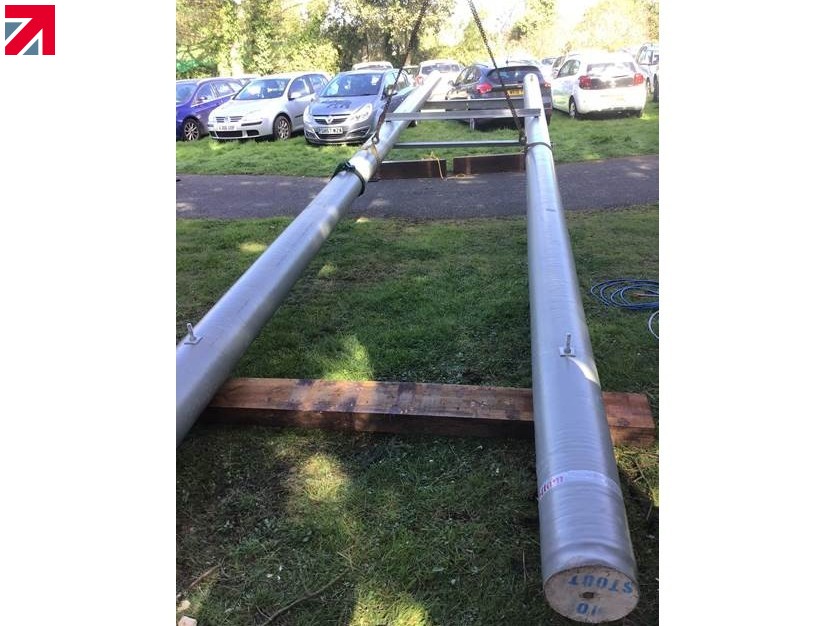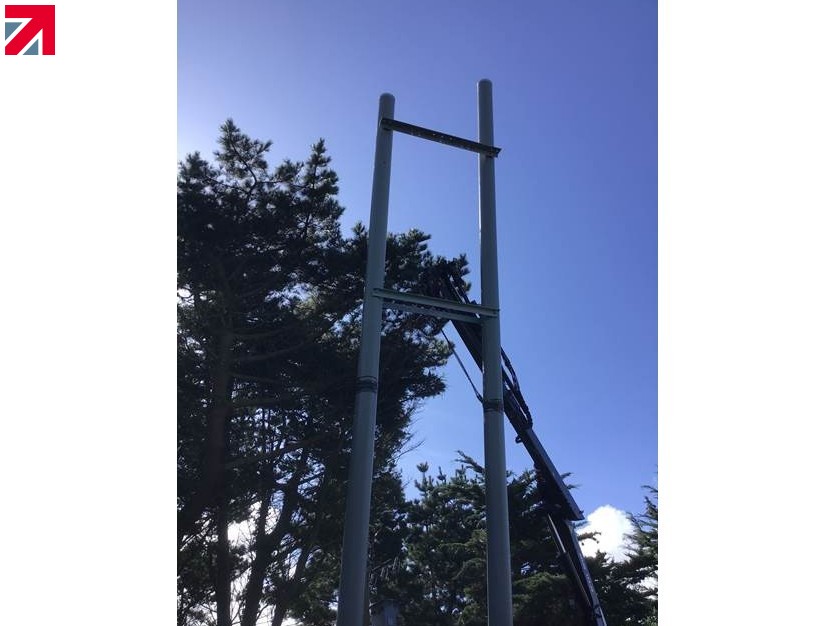Mallatite has been working closely with Western Power Distribution, to trial and ultimately gain full approval for the use of composite utility poles for electrical distribution. One challenge that has been identified is damage being caused to traditional wooden poles by woodpeckers and other pests. It was deemed that a live trial would be beneficial in determining if Jerol composite utility poles could be used as an alternative to wooden poles.
In Newquay Cornwall, they have been experiencing woodpecker damage to their timber utility poles for a number of years. The birds are mistaking poles in Cornwall for actual trees. Woodpeckers are known to return to the same spot causing damage to escalate. The holes created by the woodpeckers, if not treated may lead to rot, creating further deterioration and their subsequent change is required before they fail. According to the British Trust for Ornithology, woodpeckers are thriving in the UK, with their population increasing in the last 20 years and the species is protected. Engineers are not allowed to disturb a nest if eggs or young are present.
There is a resin available that can be used to patch the holes, which is safe, environmentally friendly and will not harm the popular bird. Although, this involves continual inspection and maintenance by staff to maintain any damage that can occur.
Mallatite is the UK’s supplier of ‘Jerol’ a composite pole that is the perfect replacement for timber poles and has been installed in countries throughout Europe for this very purpose. The Jerol composite pole consists of two layers. The inner structural layer is glass fibre reinforced polyester composite (GRP) and varies from 12-40mm thickness depending on the required strength for the pole. Secondly, the outer layer of tough 3-4 mm UV stabilized high-density polyethylene (HDPE) and can be self-coloured in a range of RAL colours. The polyethylene offers high levels of UV protection and a tough outer layer enabling the pole to be safely climbed.
This material combination makes this pole light and easy to install, yet strong enough to cope with the most demanding of loads. Also because the pole is hollow you have the option of routing cables internally. Jerol poles are woodpecker resistant, non-toxic or carcinogenic, inert and resistant to environmental deterioration and are an excellent alternative to creosote impregnated timber poles where they were previously the only option. A network with leach-proof poles for power and telecom networks sends a sincere message that you are environmentally focused and want to protect and conserve our natural landscapes.
The clean composite poles present a far safer environment for installation crews who will no longer be subject to contamination on their skin and clothing / equipment with creosote. The installation method of our composite pole is the similar to a timber pole, which means existing crews can install the poles with minimal additional training and for the most part standard equipment. The pole is manufactured in standard lengths up to 16m. Taller poles up to 24 m can be produced to order. The pole is significantly lighter than a timber pole, the weight of a 10 metre Medium pole is 213 kg, and a 12 metre Stout pole weighs in at just 402 kg, about 3/4 the weight of the equivalent timber pole.The diameter of the pole is very consistent, varying by only a few millimetres throughout its length, unlike timber poles that taper considerably. The wall thickness of 12-40 mm varies depending on the length and load requirements of the pole. The pole is strong enough to handle all current equipment.
Western Power Distribution|(WPD)
Following a successful trial of the Jerol composite pole by WPD in 2018 at their training centre in Taunton where a 4 pole line was installed using their standard installation equipment, including grabs for pole handling, and Swedish Climbers to climb poles. The main focus of the trial was to monitor the compatibility of fixings for transformers, stay wires, cross arms and other equipment to ensure successful fittings are achieved as well as learning important construction lessons when working with composite poles.
James North who was one of the line engineers involved with the trial approached Mallatite in May 2019. This was to supply 2 poles for a live trial in the Southwest of England, where the poles were required to help tackle the destruction caused by woodpeckers.The remit was to supply 2 stout poles at 10m and 11m, which were to be used as a twin pole on a sloping site. The poles were supplied by Jerol to order, with predrilled fixing holes as determined by WPD, for cross bracing and below ground baulk. The twin pole set was built up at the site with the bracing, prior to being lifted into position into an approximately 2m deep excavation designed to take the full width of the twin pole and baulk. Following backfill the remaining line equipment including a transformer and breakers were fitted.
This trial was carried out with the approval of Mike Chapman the overhead line policy engineer for WPD , who was pleased to see a live trial which will enable WPD, to determine relative costs of composite poles in this type of situation. A large part of the effectiveness is that it is believed that the composite poles will not be destroyed by the woodpeckers and therefore the cost of replacing or expensive repairs to wooden poles will be eliminated.The success of this ongoing trial along with work on a new specification for engineered poles by the Energy Networks Association, should hopefully lead to full approval of the Jerol poles enabling them to be utilised on a 'business as usual' basis in the near future.
Find out more about Mallatite Limited on its Made in Britain member profile page
Find out more about Mallatite Limited on their member profile page here
Member-created content 5 years ago | From members

